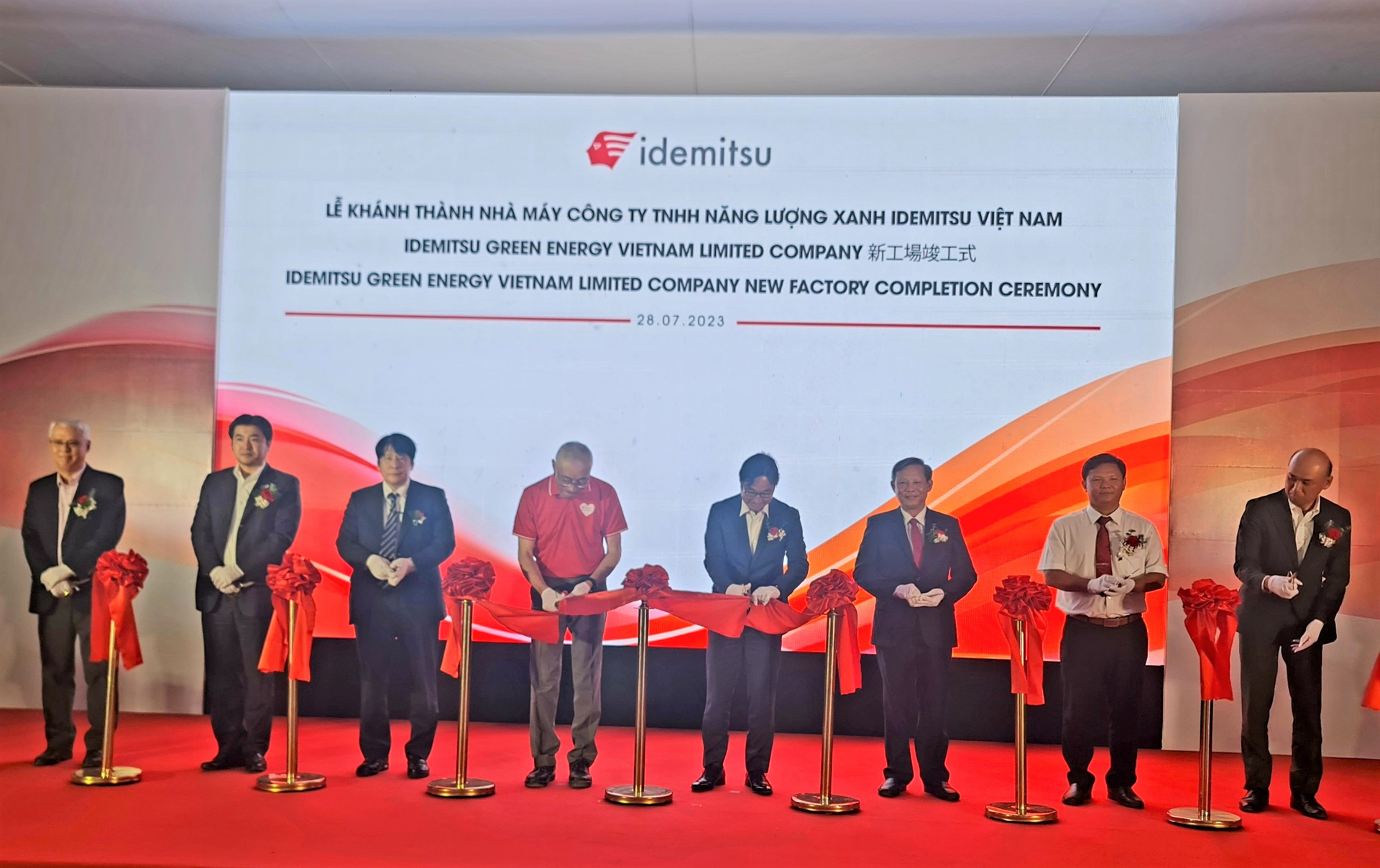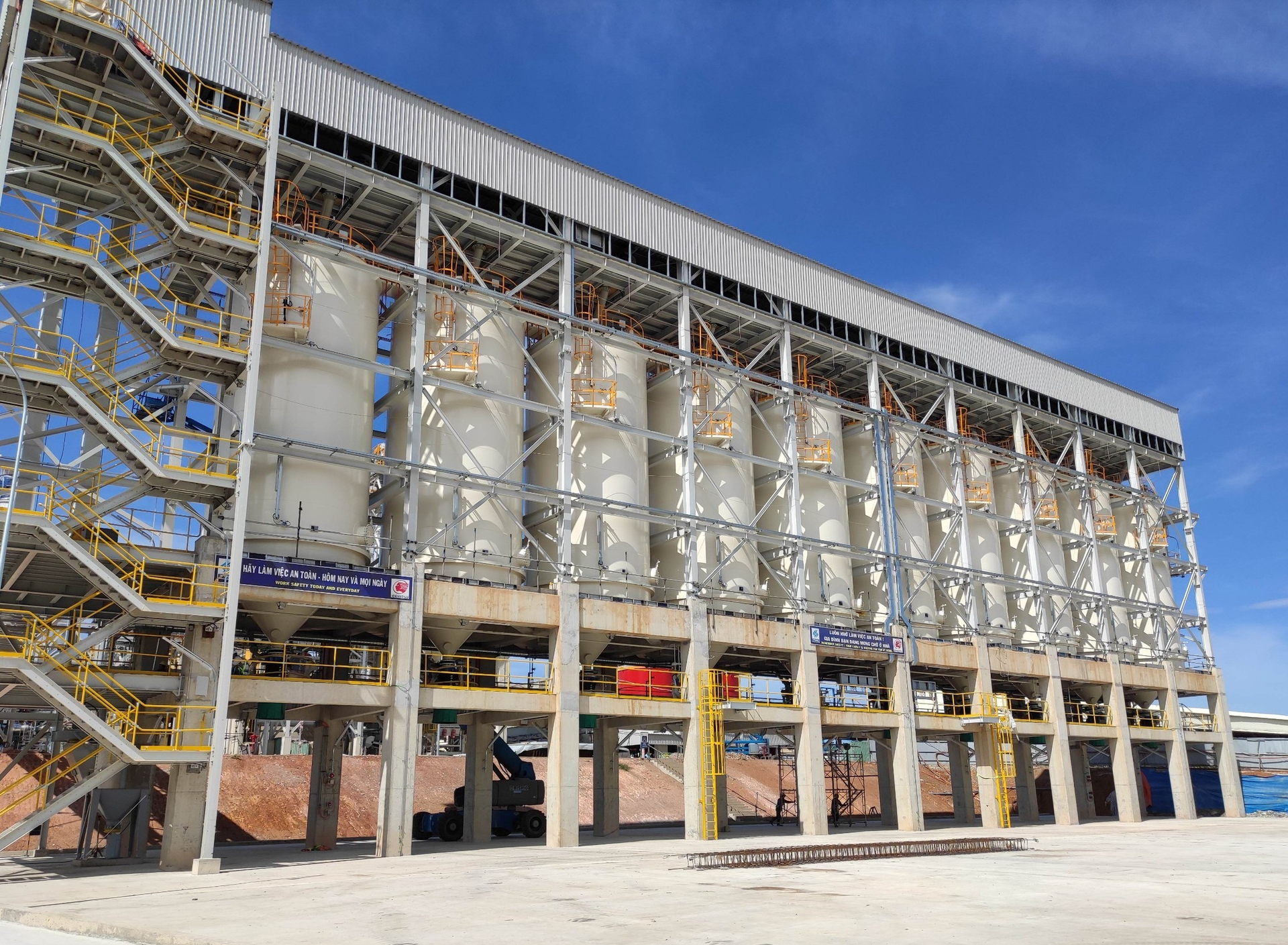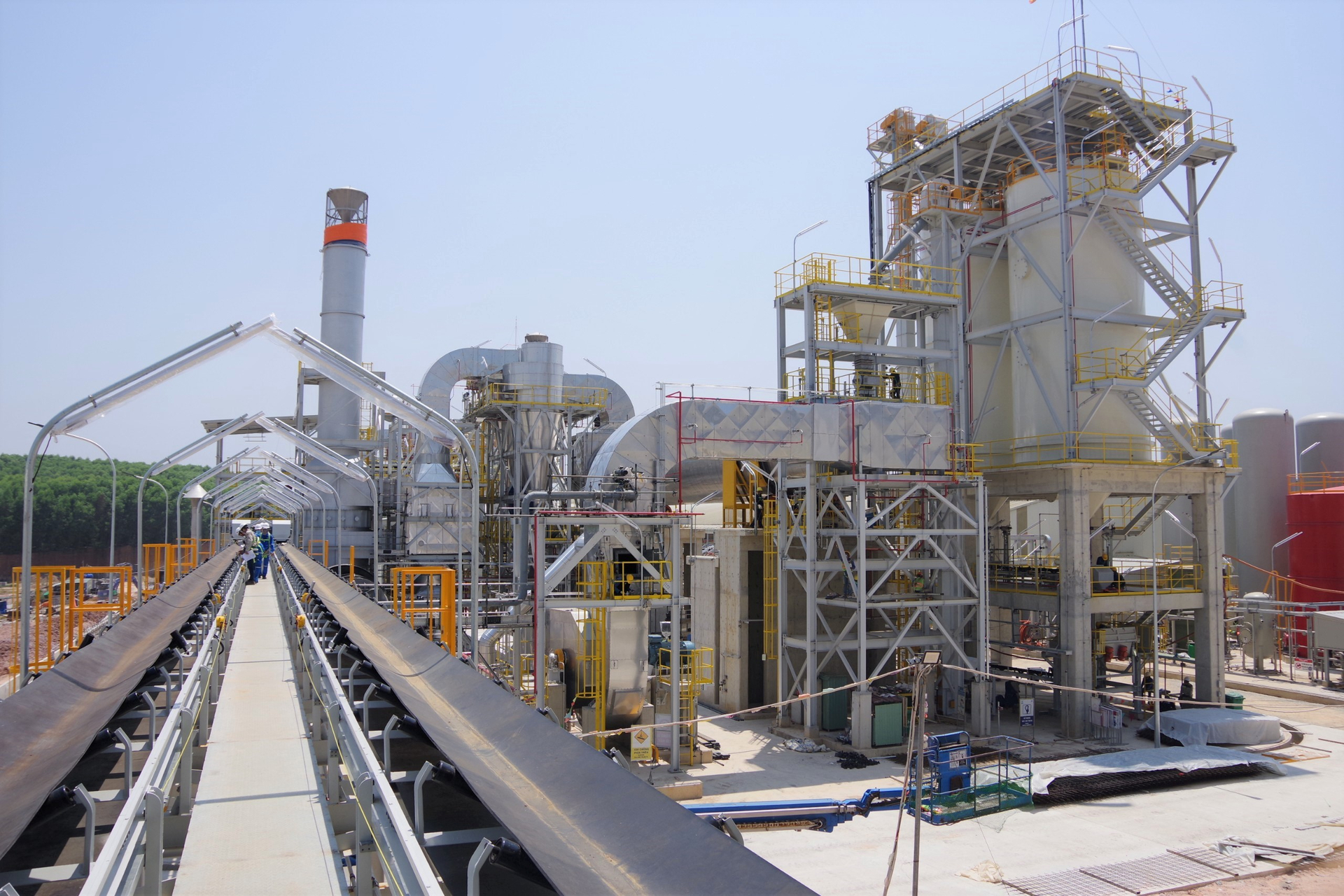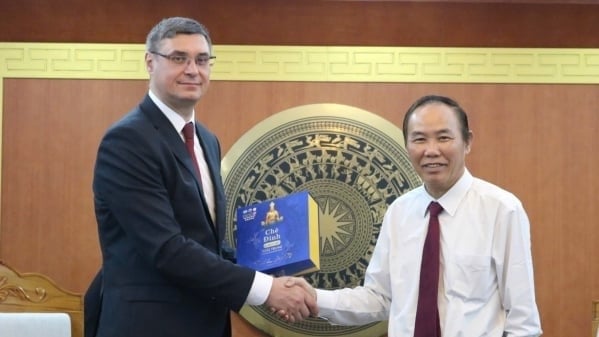May 21, 2025 | 08:47 GMT +7
May 21, 2025 | 08:47 GMT +7
Hotline: 0913.378.918
May 21, 2025 | 08:47 GMT +7
Hotline: 0913.378.918

Grand opening ceremony for the wood processing and solid biofuel production plant at Hoai Tan industrial cluster in Hoai Nhon town, Binh Dinh province. Photo: V.D.T.
Idemitsu Green Energy Vietnam Limited Company, a subsidiary of Idemitsu Kosan Limited Company in Japan, held a Grand opening ceremony for the wood processing and solid biofuel production plant at Hoai Tan industrial cluster in Hoai Nhon town, Binh Dinh province on June 28.
This wood processing and solid biofuel production plant can produce 120,000 tons of black pellets and process 36,000 cubic meters of wood every year. The plant was constructed on an area of 8 hectares, with a total investment capital of nearly 900 billion VND.
Additionally, this production plant is the first large-scale Japanese black pellet production plant in Vietnam. The plant will help Idemitsu Kosan Limited Company progress towards its goal of constructing a black pellet supply system with a 3 million-ton annual capacity by 2030.
According to Mr. Shunichi Kito, Director, Chairman and CEO of Idemitsu Kosan Limited Company, black pellets, which are high-calorie solid biomass fuels made from semi-carbonated wood pellets, have seen relatively widespread application. This product is often made from acacia wood. Idemitsu Vietnam Green Energy Limited Company will be responsible for the purchase of raw materials. In addition, the company is attempting to establish a raw material purchasing system to meet the plant's production needs.

Overview of the wood processing and solid biofuel production plant owned by Idemitsu Vietnam Green Energy Limited Company. The plant was constructed in Hoai Tan industrial cluster, Hoai Nhon town, Binh Dinh province. Photo: V.D.T.
According to Mr. Shunichi Kito, coal is primarily used to generate electricity, produce pulp and paper, create chemicals and foods, and support the daily needs of people in Japan. Idemitsu Kosan Limited Company operates with the goal of reducing carbon emissions from Japanese coal consumers, which will contribute to the supply of sustainable energy and materials.
“With our 40-year of experience in the coal business, we aim to build an integrated biomass fuel supply chain that includes raw material procurement, production, sales and shipping. On the other hand, we will strengthen the trading, production and distribution of black pellets in order to promote the use of combustion fuel in combination with coal”, shared Mr. Shunichi Kito.

Idemitsu Vietnam Green Energy Limited Company equipped the wood processing and solid biofuel production plant with high-tech production lines. Photo: V.D.T.
According to Mr. Shunichi Kito, biomass fuels made from plants emit CO2 when they are burned. However, they are considered carbon-neutral fuels because these plants absorb CO2 during their growth. In co-firing tests, black pellets produced by Idemitsu Vietnam Green Energy Limited Company are burned in combination with coal at a maximum level of 35%. Additionally, this alternative fuel emits unnoticeable amounts of CO2.
“We are looking at the possibility of increasing the fuel combination ratio and using solely black pellets as fuel. Being partially carbonized, black pellets have high calorie contents compared to regular wood or white pellets. They remain in powder form similar to coal before being put into the boiler. In addition, black pellets have higher water resistance compared to regular wood pellets, so they can be preserved in outdoors coal storage" emphasized Mr. Shunichi Kito.
Translated by Nguyen Hai Long

(VAN) The trade turnover of agro-forestry-fishery products is growing significantly, along with investment cooperation commitments that are opening up new development directions between Vietnam and Russia.

(VAN) Khanh Hoa is investing over 545 billion VND to develop 240 hectares of high-tech marine aquaculture in order to guarantee a consistent supply of seafood exports and achieve the USD 1 billion target.

(VAN) Minister of Agriculture and Environment Do Duc Duy held a meeting with Soopakij Chearavanont, Chairman of C.P. Group, on May 15.
/2025/05/16/3800-0-nongnghiep-143756.jpg)
(VAN) Suntory PepsiCo Vietnam coordinated with the Ministry of Education and Training to implement an education program on water conservation, reaching nearly 1 million primary school students nationwide.

(VAN) Vietnam’s TH Group officially put its high-tech fresh milk processing plant into operation in the Russian Federation, marking a historic moment as the first TH true MILK cartons were produced in Russia.

(VAN) Use of high-quality broodstock and biotechnology is regarded as the most effective approach to ensuring sustainable and economically viable shrimp aquaculture ahead of climate change and the emergence of increasingly intricate disease patterns.

(VAN) Carbon farming is a form of agricultural practices that helps absorb more greenhouse gases than it emits, through smart management of soil, crops, and livestock.